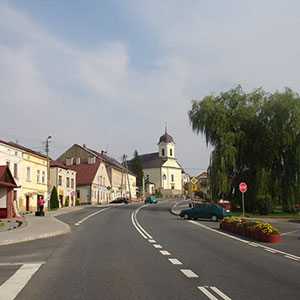CR takes this opportunity to publish a letter written by Eli Rubenstein, the Canadian Director of the March of the Living and an award-winning educator, to the JTA (Jewish Telegraph Agency) concerning its Dec. 11th article about Polish rescue efforts of Jews during WWII, followed by our own comments.
Monday, December 12, 2016
To the Editor of the JTA:
As someone who has spent much of his life trying to improve Polish-Jewish relations, I was very disappointed in the last line of your article concerning the new museum opening in Warsaw honouring non-Jews who risked their lives to save Jews from the Holocaust.
The last line reads: “If Poland had the Netherlands’ ratio of saviors per Jews in 1940, there would have been nearly 120,000 Polish Righteous Among the Nations.” (Poland had a pre-war Jewish population of 3.3 million. Over 6,000 Poles are honored as Righteous Among the Nations. Over 5,000 Dutch are honored with the same title. Pre-war Holland’s Jewish population was about 140,000.)
The article gives the impression that Poles were far less brave than the Dutch in helping Jews.
In truth, as I am writing in my upcoming book on the subject, the Holocaust has a unique history in each country, which often defies easy comparison with other countries.
In this instance, the following differences need to be pointed out:
- Poland unlike the Netherlands, after Nazi Germany’s occupation, was completely dismantled as a country during WWII, and were suffering their own genocide (Approximately 6 million Poles were murdered but the Nazis during WWII, half of whom were Jewish, the other half Christian.) When you are undergoing genocide of your own, it is not so easy to help others. This was not the case in the Netherlands.
- The Netherlands bureaucracy actively helped with the identifying, rounding up and deportation of Jews. This never happened in Poland, although of course there were individuals collaborators as there were in every European country in WWII.
- The penalty in Poland for hiding Jews – or even helping them – was death. A most famous example was the Ulma family – Jozef, his wife Wiktoria, who was seven months pregnant, and their six small children. They were all murdered by the Nazis for hiding Jews in their town of Markowa. My friend and hidden child Anita Ekstein remembers seeing in the small town Liczkowce close to Tarnopol where she was hidden by a priest, a Polish family hung by their necks in the centre of the town, with signs saying this is what is done to those who helps Jews. In Holland, by contrast Anne Frank’s rescuers all survived. Only two men were arrested – one was let go because of illness and the other was imprisoned for about a year and half in a labor camp. In Poland, every single person in those families would have been killed.
I suggest that the last line of the article be removed, or corrected reflecting the complexities noted above.
There is enough hatred, misunderstandings and ill feeling in the world today, surely we should not want to create any more.
Sincerely,
Eli Rubenstein
National Director
March of the Living Canada
March of Remembrance and Hope Canada
Director of Education
March of the Living International
tel. 416-398-2615
tel. 416-605-0850 (cell)
elir@bell.net
•••
We at CR express our gratitude to Eli Rubenstein for this letter, and for his longtime dedication to fostering respect and dignity between Poles and Jews, and indeed among all people. His commitment to his own community is well known, as is his conviction that nothing is gained by ignorance, hyperbole and contempt of others. As such, his teaching is a model of what an educator should strive for. It is little wonder that he is highly regarded by his community, much loved by Holocaust survivors and youth, and appreciated by the many communities who have had the honour and the pleasure to work with him. He is currently writing a book about the variety of responses in occupied Europe, noting the unique conditions of each country. Rubenstein’s letter was endorsed by other educators of the March of the Living (Canada), including Holocaust survivors.
Read more about Eli Rubenstein: Remembrance, Commemoration, Education, and Celebrating Life
We also recommend the book, “Code Name: Zegota”, by Irene Tomaszewski and Tecia Werbowski published by Praeger in 2010.
We bring your attention to a recent panel discussion on the subject of Zegota, the secret Polish organization to aid Jews. The panel, part of the program during Holocaust Education Week in Toronto, featured prominent Holocaust scholars Joshua Zimmerman, Samuel Kassow and Dariusz Stola, moderated by Professor Piotr Wrobel of the University of Toronto. You can listen to the discussion on POLcast.
A 1997 documentary based on this book features interviews by Irena Sendler, Wladyslaw Bartoszewski, Israel Gutman, and Aleksander Gieysztor as well as several rescued of the rescued. By Documentaries International, Sy Rotter and Irene Tomaszewski, narrated by Eli Wallach. Available from http://legacy.scetv.org/web/moral_courage/guides/general.html
Also:
Two-part interview with Eli Rubenstein by POLcast: Part 1 Part 2 and accompanying article “Building bridges with the past and across cultures.”
CR




Eli, thank you for presenting historical truths that unfortunately are unknown by most. I’m hoping the JTA Editor will update the article accordingly.